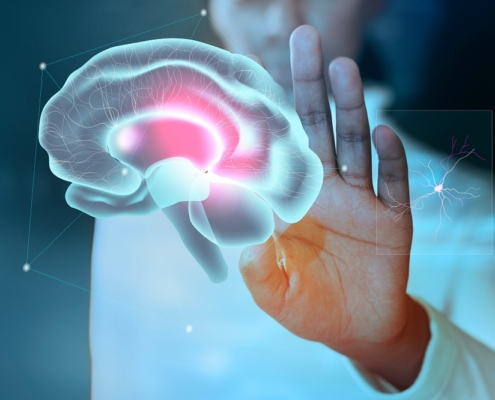The brain development of children between the ages of 3-6, which we call early childhood, is affected by environmental stimuli. The child’s learning ability, experiences, how many stimuli he/she encounters, how many social environments he/she enters, and the socioeconomic level of the family affect this development. This fresh brain, which constantly establishes new neural connections, is affected and changes by new information and experiences in the first years of life. This change is actually called brain flexibility, or neuroplasticity. Neuroplasticity is the ability of the nerve cells in our brain to learn and change. This ability allows the acquisition of cognitive functions as well as the determination of motor skills, language skills, social and emotional abilities.
How to increase brain flexibility in children?
One of the most effective ways to stimulate a child’s brain is play. Play is a natural activity that allows the child to learn and associate with his/her environment. A game is a stimulating activity that requires the functionality of different components of child development, as well as being rewarding in itself.
What does play bring to a child?
Play provides many cognitive gains as well as the child’s spiritual development. These are;
– Reasoning
– Stimulation of reflexive (thinking about oneself as an object) and representational thinking and understanding skills
– Activation of memory and attention (For example: Hand games, stone games, etc.)
– Development of imagination and creativity
– Distinction between fantasy and reality
– Increasing the development of language and abstract thinking
– Development of personal autonomy
With the use of new technologies, various games such as riddles, mazes, and logical problems available for smartphones, computers, and tablets can also develop children’s cognitive functions. However, games that children play with their friends or family rather than individually are always more beneficial. If they are going to play individually, games that require imagination provide this flexibility and cognitive gain. If we consider toys, toys that do not offer every function ready-made, such as legos or plain, not too colorful wooden blocks, where they can do different things with imagination, are useful. In addition to these, games such as puzzles that require assembling pieces provide the same benefit.
In addition to toys, we have known for a long time the positive effect of playing a musical instrument on intelligence. Studies show that children who are involved in music have significantly greater academic success than those who are not.
 https://drturanpoyraz.com/en/wp-content/uploads/2023/07/kafatravmasi.jpg
666
1000
drturan_pyrzawp
https://localveri.net/drturanpoyraz/wp-content/uploads/2024/07/logo2.png
drturan_pyrzawp2023-07-18 17:33:472024-08-01 16:32:02HEAD TRAUMA AND BRAIN INJURY
https://drturanpoyraz.com/en/wp-content/uploads/2023/07/kafatravmasi.jpg
666
1000
drturan_pyrzawp
https://localveri.net/drturanpoyraz/wp-content/uploads/2024/07/logo2.png
drturan_pyrzawp2023-07-18 17:33:472024-08-01 16:32:02HEAD TRAUMA AND BRAIN INJURY






